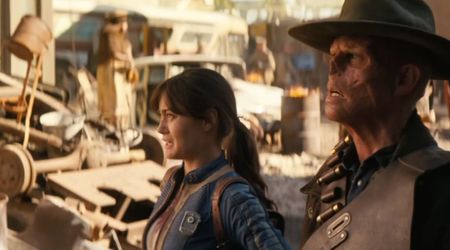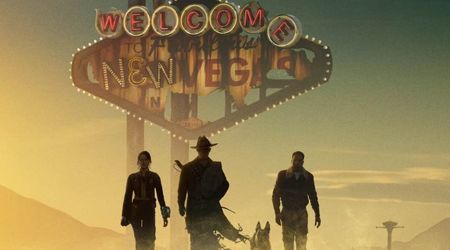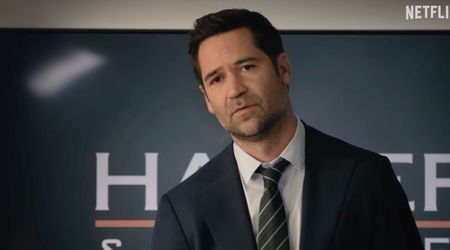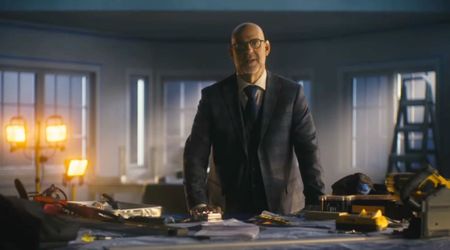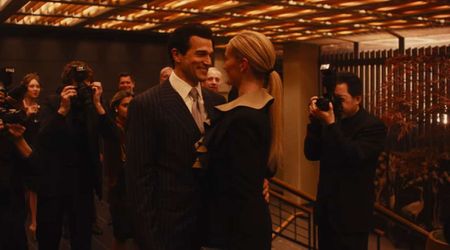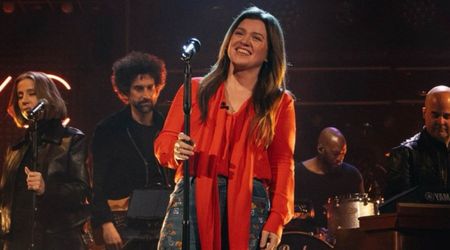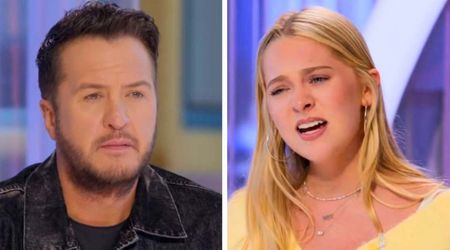'Noughts + Crosses' star Bonnie Mbuli says show coming to US in wake of Black Lives Matter was 'serendipitous'

The best part about 'Noughts + Crosses' is how well it captures microaggressions and casual racism, highlighted through the dialogue of the 'elite' Crosses played by Black actors when they are interacting with 'Noughts', played by White actors.
One of the first lines that Jasmine Hadley played by Bonnie Mbuli has is addressed to her White housekeeper Meggie McGregor (Helen Baxendale) about how she'll finally "get some color" because of the rare sunny weather they were having. In an exclusive interview with MEA WorldWide (MEAWW), South African actress Bonnie Mbuli spoke about how shocking the radical script was for her and how she had to spend time to embrace the mindset of the upper-class Jasmine Hadley who comes from the "favored race".
"When I first read the script for the series, I was so shocked. I almost had to go through layers of shock, where I'm actually realizing the sort of casual racism that I allow, that I just accept in my personal life. These microaggressions are so regular that I do not have the strength to react to all of them. But by reading the script over and over again, I realized how racism is so insidious, right? It's not only learned behavior but it is also behavior that goes unchecked. So by the time I was on set saying those things to Meggie, I had to deliver the lines in a way that made it clear that Jasmine was so oblivious. People who are favored by society as superior don't check themselves as much as those who are oppressed. So as Jasmine, I never have to think about what I've just said because I don't have to -- the world has already reinforced this belief in me that no matter what I say, I'm always going to be right, I'm always going to be okay. It was about bringing that nuance into my physicality as an actress," she said about portraying Jasmine Hadley, the unhappy but privileged wife of Kamal Hadley, an influential politician.

For Mbuli, and other Black actors cast in the series who she spoke to while shooting, it was the first time playing something "aspirational on-screen". "It was the first time that we were allowed to wear our hair the way we wanted to without having to assimilate whiteness. It was very interesting to experience myself as a person who doesn't have to scrutinize herself and it was really fun."
Playing the role, also gave Mbuli a way to objectively view racism that is still rampant in South Africa. "It gave me a chance to examine the issue [of racism] from a vantage point that I've never had before because there's something about playing a character that removes your ego. It removes your concept of self from the matter at hand. After shooting, I would watch racial interactions that were triggering or that were harmful from a very different perspective. I could actually just say, listen, this has nothing to do with me. This is a person who has been raised in a certain way, sees the world in a certain way. So taking it personally, it's strenuous, right? And it is not a way you can live in the world. And then when 'Black Lives Matter' happened and the show was about to launch in America, I thought, what are the chances? It was so serendipitous. I really got to see firsthand the power of storytelling -- the power of storytelling to free one from their own personal shackles that makes you self-blame even when you are not the perpetrator."
Mbuli also gave us some insight into her pivotal relationship with Meggie. "She's [Meggie] literally Jasmine's only friend, right? She's the only one she confides in, but she would never call Meggie a friend because Meggie is not worthy of being a friend because she's from a lesser class. So she dumps on her. In her mind, she is thinking, 'you clean my house, you make my bed, you raise my kids, so why don't you take care of my emotions as well while you're at it'. That's kind of how I saw it. It was like -- 'Why don't you parent me while you're at it, because this is your job'."
Mbuli hopes that the race reversal in the series will help start conversations. "I was hoping to get a reaction from the audiences appreciating that finally, somebody is telling this story in a way that is not emotionally charged. I can sit in my house and not have to have to explain microaggressions because how do you explain it? You really can't. You have to show it. I was hoping that African Americans would say, 'Oh, wow. Okay. Finally, you get to know what it feels like to be me in a way that is very personal to you'."
'Noughts and Crosses' is available to stream on Peacock.


